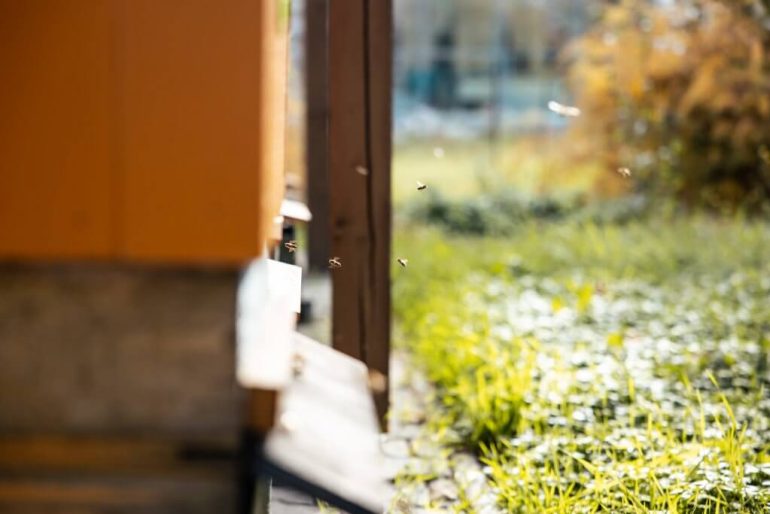The results of many years of research into the genetic diversity of the honey bee population have been presented by geneticists from the Faculty of Agriculture at Brno’s Mendel University. Their research focused on finding polymorphisms in DNA that could be used to select bees for disease resistance. This has resulted in a unique genetic database, the data held in which could one day be used to breed for disease resistance in bees.
The genetic variability of the Czech honeybee population has not been studied in detail. Therefore, a team of scientists from the Faculty of Agronomy decided to create a representative sample. “We divided the whole of the Czech Republic into regions and districts and collected the same number of samples in each of these geographical areas. In this way, we created a unique database containing more than 5,000 bee samples from the Czech Republic,” explained Tomáš Urban from the Institute of Animal Morphology, Physiology and Genetics at MENDELU.
The scientists were then able to work with the samples in a more systematic way, generating data that will help to reveal the genetic diversity of bees in the Czech Republic. “The so-called black bee, Apis mellifera mellifera, was traditionally adapted to the territory of the present-day Czech Republic. About 200 years ago, a new type of bee was gradually introduced from the south, from the territory of present-day Croatia and Slovenia, where the so-called Carnic bee, Apis mellifera carnica, is found. Thanks to the analysis of mitochondrial DNA, we found that the black bee haplotype does not occur in our samples,” said the scientist, describing the finding that the original type of bee typical for this region probably no longer exists here.
The import of bees from southern parts of Europe to the Czech Republic has historically been important for breeding. However, molecular genetics is now expanding this further. Thanks to the gene database, scientists have not only identified the diversity of bees in mitochondrial and nuclear DNA in the Czech Republic, but also discovered genetic differences in individuals that should be more resistant to diseases. This may one day help in breeding bees, for example against varroa.
“In Germany, England and the Nordic countries, there are efforts to gradually increase the resistance of bee colonies, but in practice this has not yet been very successful. The immune response of bees and their behaviour are problematic. This is why it is necessary to search step by step for genes that might be responsible for better resistance to pathogens. This was another part of our research,” Urban adds.
Scientists have developed certified methodologies for testing individuals using microsatellite markers. Thanks to them, bees can be identified and their variability in the population can be monitored. The second methodology also identifies those bees that may be more resistant to various pathogens. This could help breeders improve varroa resistance in the future.








